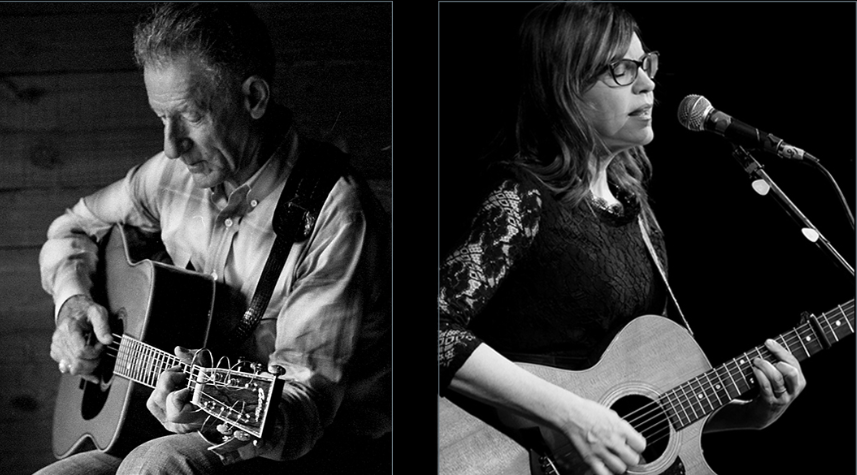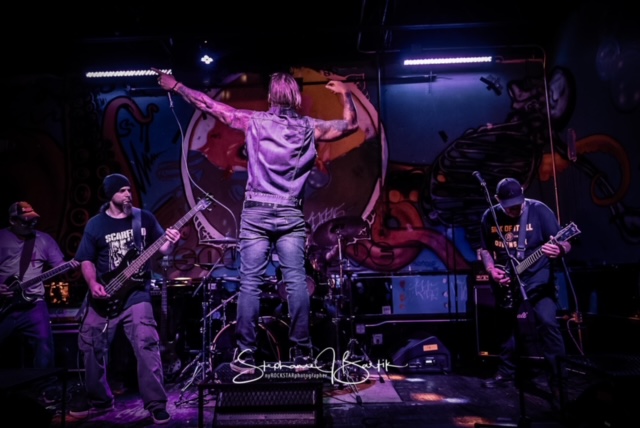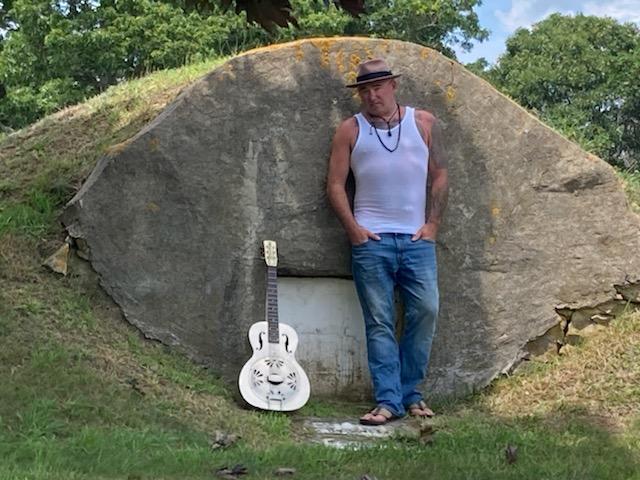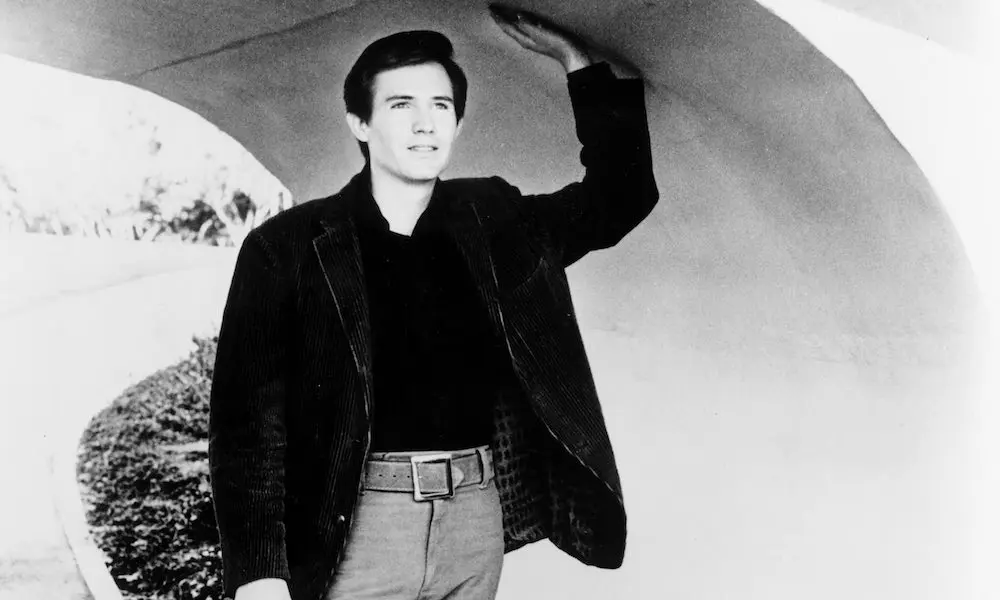Marcus Benoit – An Interview with Liam Sweeny
Written by Staff on July 9, 2023
The love of music is universal. The joy of happening upon a killer bass riff is the joy of a flawless execution of a passage by DeBussey. They both make you feel, they both give you a rush. But this is on the musicians’ end. The music lover, the music listener, may simply be moved by both, or even talk over both.
Marcus Benoit has taught music for a good chunk of his life, while dedicating the erst of his life to, you guessed it, music. He is a wealth of the knowledge and feeling of jazz without being limited by it. And you might just see him somewhere.
I connect with Marcus and we discuss decorating snare drums.
RRX: You play traditional jazz, Latin jazz, light jazz, blues, and crossover music. I imagine that having enough mastery to play one of these styles of music is a considerable feat, but having the ability to play all of them is beyond considerable. What style did you start with, and in picking up new styles, you hopped from what to what?
MB: I started playing what was called then soul music in the early 1970s in Germany as a 16 year old Army brat. I was playing in bands that covered music by artists like James Brown, Marvin Gaye, Brook Benton etc at the same time started trying to learn jazz and occasionally had some jazz gigs. And also occasionally doing blues and music by bands like Cream, John Mayall, even Led Zeppelin. When I came home the the US in 1973 disco was very popular and so did those kinds of dance gigs in the capital district until I joined the Air Force.
RRX: You played in the Air Force Field Band. I can only imagine the perfectionism that was demanded by that band. Have you been in any bands similar, and if so, were they a different level? And did you learn how to play in the military, or did it sharpen your playing in a way that benefitted you later?
MB: The Air Force provided many fantastic musical opportunities for me. The different groups I played in covered a large musical terrain. Marching band, jazz big band, small jazz groups, rock band, concert band. The military paid for lessons so I had the opportunity to study saxophone with Joe Allard and a couple of piano lessons with Walter Bishop Jr. Besides the constant performances it gave me time in those early years to practice and really focus on gaining a handle on jazz. The civilian world of music is a very different challenge. Mostly bar bands, I did a long stint playing jazz with Cole Broderick, wedding bands, blues/rock bands and of late a lot of rockabilly work. Finally two huge benefits I gained from the Air Force was the GI Bill which I used to go to college and enabled me to gain 3 years toward my public school retirement.
RRX: You’ve been in the public school system for over twenty-five years. That’s a big accomplishment, and a bigger lift for society. But everything is an education, including music. As a music teacher, did you ever find the lesson to be reciprocal? Did a student ever do something in a way, naturally, some technique, that you adopted yourself?
MB: What I gained from public school teaching is an insight into the challenges inner city kids face and that in turn helped me grow as human being. When one is dealing as a teacher with the problems the kids shoulder coming from low income and tough neighborhoods you have to be creative in your social skills and skills of discernment. Music for me was only a part of what had to be done each day. It takes time to find where you can teach in an authentic way and also consider what is most relevant to help a child succeed beyond music.
RRX: You play for a lot of events, corporate, weddings, and such. You’ve been in Cole Broderick’s “Seasons of Saratoga” CDs, four of them. A lot of bands I interview go to show specifically to let their hair down. I imagine the events you play are different. What’s a key difference between playing an event and playing a show?
MB: An event such as a wedding is about playing music that will fit the situation. Essentially dance music doing covers the audience knows. A show doing original music or say a specific style of music, has the intention of inspiring the crowd that came for that. If its jazz then they are listeners. Last summer I played a Blue Grass Festival and that crown was interested in roots or Americana music. I try to wear the hat that is required. It makes it fun to have variety from night to night.
RRX: You were nominated for a 2022 Listen Up award, first of its kind, nominated and voted on by the people. Would you like to give any words to the people who nominated you? And have you any musician or band that you’d like to see nominated in the next Listen Up award (you’re “the people” too.)
MB: Well a huge thanks to those folks and I am truly flattered! As for musicians or bands, I could name several from our area. We have many great artists in the 518. I would nominate Mark Jamsgager leader and founder of the Lustre Kings for his excellent band leader skills, rockabilly guitar and vocal work and all the fantastic musicians he uses from night to night.
RRX: There is a difference between music as a creative outlet and music as a profession. It’s an unpopular statement, but screwing up a note on an original song and screwing up a note on a well-beloved jazz piece are different. There are different expectations of the crowd. What advice, from professionalism, do you give to a band just going for a sound?
MB: The best advice I could give to any musician is practice, study whatever you are into, and get your skills up to task and a wrong note is not the end of the world. Maybe even more important than that is this quote from the movie Bill & Ted’s Excellent Adventure. Be most excellent to each other!…people will remember how they were treated, even if you do not like the scene of the night, no one likes a complainer.





 RadioRadioX
RadioRadioX